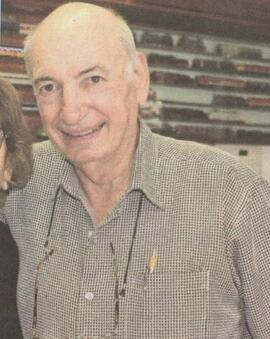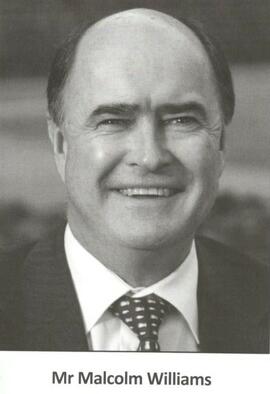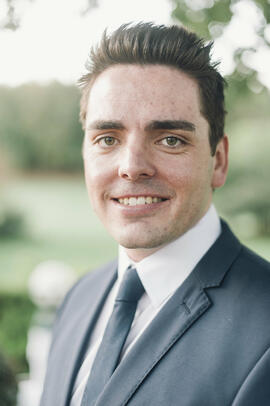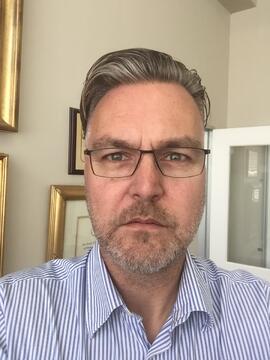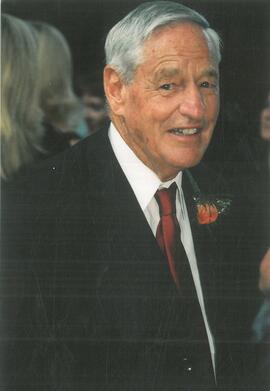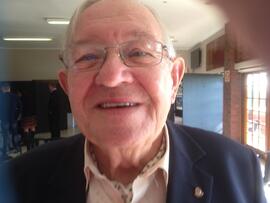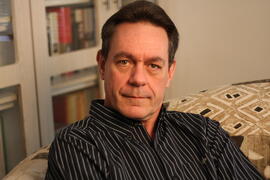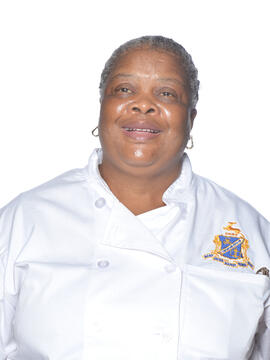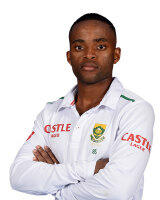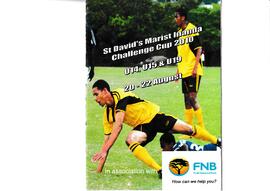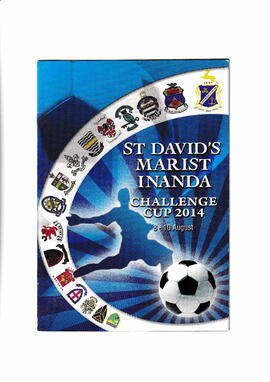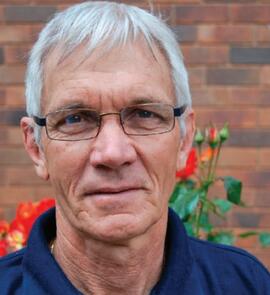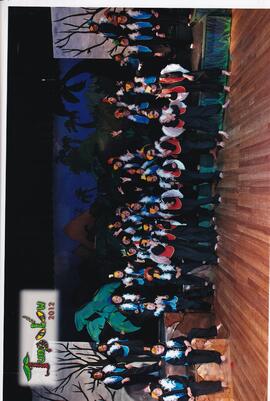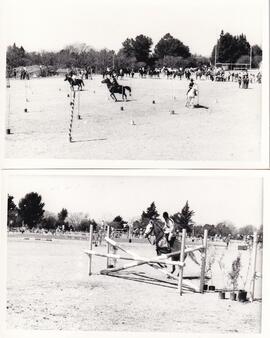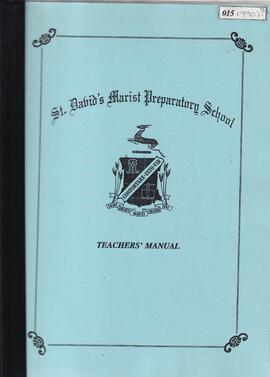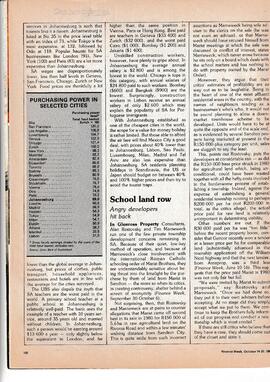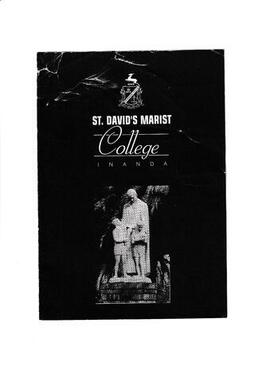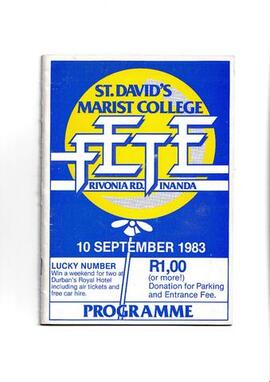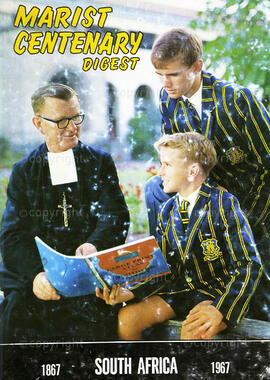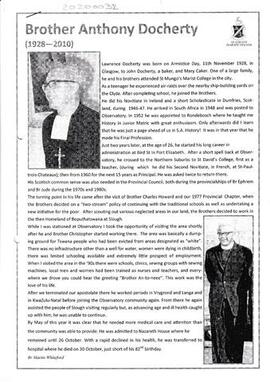Interview with George Lagoudis 1957
- ZA ZAR STDS 202000787
- Stuk
- 2013
Interview with George Lagoudis – 1957
George was a boarder from 1949 until 1957 and enjoyed his time at the school. His cousin Theo
Ananiades from Lorenzo Marques in Mozambique was the head of College House. The Saheti
school did not exist in those days.
Brother Edwin was the headmaster who ruled with an iron fist and was extremely conservative.
He was appointed Brother Provincial in 1957 and Br Benedict succeeded him as headmaster.
Br Benedict was a good man, housemaster for the A & B dormitories, he coached rugby and
was involved with sport at the school. Br Benedict had a more reasonable and modern
approach which was not understood by the boys and often abused.
The Brothers were clever teachers such as Br Ephraim who understood a lot of things and
taught Maths, Science and Latin and caned a whole class on one occasion.Br Bonaventure
taught Latin at matric level, Br Bartholemew taught Geography using humour to make his
lessons more interesting, he later became the principal of Koch Street. Br Lawrence was a nice
man who spoke a little Greek. Br Ralph, a big man helped with sport and specifically 1st team
rugby and showed the boys a lot of techniques. Br Gerald was in charge of the dormitories. Br
Charles Andrew Cowen was from America, presented himself to Br Edwin in his Saturday
clothes and was sternly reprimanded and told to don his cassock immediately. He had an
America approach to education which was at odds with the blinkered, regimental South African
model. Mrs Kempster in the prep was very strict but always had the best results at the end of
the year. It was nothing for her to strap the whole class 2 or 3 times a day – 10 and 11 year old
boys don’t concentrate well for too long.
Br Anthony got his nickname “Oanges” when George was sitting outside the dining room one
day playing with oranges. Br Anthony commented on this, hence the nickname.
George recalled that in his time there were about 70 boys to a class housed in the old study
beneath the old Chapel. Students always rebelled against the teachers and there was an
incident when one of the boys got hold of a cassock and bib and displayed it high up near the
water tower.
George was a thin, sinewy little boy and there was a big chap who bullied him until, one day he
came out of the dining room and in response to some comment, George swung around and
gave him a crack on his jaw and both of them ended up with bloody noses but the bullying
stopped. It was a difficult time for George because of the timing of the Cypriot campaign and he
was often singled out being the only Greek, with is nickname being “Greekie”. Because of this
he and Buchman, a German who was also bullied became friends. Other friends were Anton
Zunkel (North Transvaal) and Brian Jeffries (Durban).
There wasn’t much in the way of cultural activities but Mr Drummond-Bell did organize the boys
to sing the “Ave Maria” at the city hall. There was also a production of the “Pirates of Penzance”
but George’s voice had broken by this time. George remembers one debate against Obs where
the topic of whether the radio was needed or not was discussed. There was also the occasional
debate against Parktown Girls at their school.
On a Sunday, the non-catholic boys used to walk to the Church of England church, St Martin’s
in the Fields escorted by Father Bannon in his car. The boarders used to get one weekend off at
month end and visiting Sunday was every other Sunday of the month from 2pm until 6pm. The
food wasn’t bad but there was a lot of competition for the day boys’ sandwiches.
The boarders had lockers, George’s was number 807. The locker rooms were next to each
dorm which had 44 beds in each with a sleeping area, washrooms and the area where the
Brothers slept. In the middle were the racks for towels and gowns. One day after tea he
changed to go to the rugby field and a boy threw an orange which splattered all over George’s
locker and took Br Bartholemew’s glasses off.
The boys also stored their tuck in their lockers, which were not locked. Brian Jeffries used to
raid George’s locker and George responded by placing brooklax which looked like smarties into
a smarties box. As a result Brian subsequently spent a lot of time in the toilet and thereafter no
longer raided George’s tuck!
George was a good athlete involved with long distance running and together with Brian Jeffries,
head boy, was awarded the victor ludorum . He also played rugby 3rds, did a little swimming
and played tennis. He recalled the cinder track where the prep playing fields now stand. The
track was used by the university and for school events. The school competed against Germiston
and Springs Boy’s High Schools both home and away.
There was no official matric dance in 1957 due to a misunderstanding between the boys and
the Brothers, however the boys saved the money themselves and had an evening dinner and
dance at a night club in Eloff Street instead.
There was an annual dance in June/July when the rubber floor in the boarders dining room was
used to facilitate the dancing. The Arthur Murray dance school taught the boys to dance.
A lot of emphasis was placed on sport and as a consequence, academic s suffered and George
had to repeat his matric at Damelin, a cram college. There were 30 -32 boys in his matric class.
On finishing his education, initially George worked behind the counter of Portas delicatessen
and found working with the public quite an education in itself. He worked as a representative for
Vaal Tobacco selling cigarettes and went into the air force, working during the day then putting
in his hours at Dunnotar air force base training school. Unfortunately he didn’t pass the exams
but then did a course in engineering drawing and spent several years as an engineering
draughtsman for EBS Metal which was the first company to produce lathes and small presses in
SA during the years of sanctions. Later he was offered a job with the Travena Group managing
a store in Springs and eventually bought his father’s business in 1970. His delicatessen Portas
– The Shunting Yard is now located in Sunninghil and he also sells model trains through a
German dealership.
George last visited St David’s about 30 years ago and his grandchildren attend the Saheti,
Greek school.
JLE February 2013
Egenrieder, Julie

